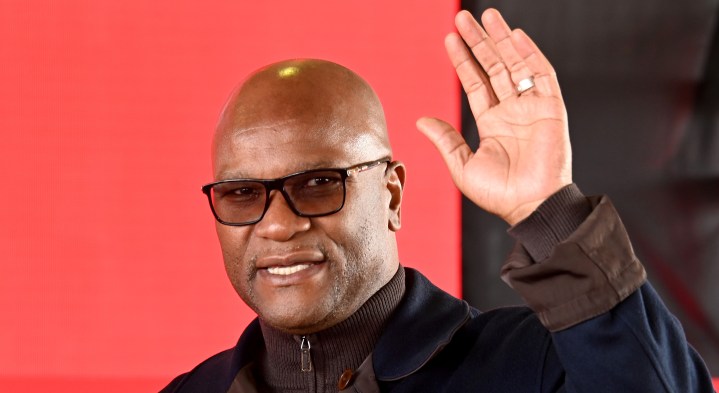CIVIL SOCIETY
What happened to democracy? SA’s citizens increasingly pushed out of public participation

According to the South African Constitution, there are certain important government processes on which the public has to be consulted. But increasingly it seems that only lip service — at best — is paid to this requirement.
The Commission for Gender Equality (CGE) needs new commissioners — and, as is required by law, the public has been invited to comment on the suitability of shortlisted candidates. But when Parliament’s committee on women, youth and persons with disabilities called on the public to make submissions, it soon became clear that it would be very difficult to do so in any meaningful way.
Though the committee had listed 24 candidates for the public to comment on, there was no information given about the candidates’ experience in gender work. The public was allocated just 2,000 characters — not words — to share their views, and people had a window of just 10 days to do so.
This week, gender activists wrote to Parliament to express their “strong objection” to the inadequate nature of a public participation process that is supposed to allow for “fact-finding, discussion and consideration by civil society”.
The letter of complaint was signed by 45 organisations and 17 individuals.
According to law, the most important criterion for a CGE commissioner is a “record of commitment to the promotion of gender equality”. The activists asked how the public was supposed to assess the shortlisted candidates when “there is no description of their work or activism in this context, or even their own motivation for applying”.
The activists argued that the appointment of new commissioners to the CGE is currently particularly critical because the body “has lately been mired in scandal, has failed to carry out its mandate diligently and impactfully, and is plagued by governance woes, accusations of in-fighting and bullying, and disturbingly high staff turnover”.
Against this worrying background, the activists contend that the calibre of the new commissioners is of paramount importance.
But it isn’t just the parliamentary committee on women which is shirking its duties when it comes to public participation. There are increasing reports of problems with this issue in almost all spheres of government.
Organisation Undoing Tax Abuse (Outa) researcher Rachel Fischer told DM168 this week: “In most instances the public participation process is rushed, is preceded by poor notification and information, and mostly functions as a tick-box exercise.”
Others use harsher language. Corruption Watch’s Kavisha Pillay described much public participation as a “farce”. Nicole Fritz, director of the Helen Suzman Foundation, told DM168 that it has become “a problem of enormous significance”.
Arts & Culture
Last week, veteran arts management specialist Dr Ismail Mahomed was scrolling on Facebook when he saw a reference to a “National Theatre & Dance Policy Conference” to be held on 2 and 3 September in Johannesburg. Initially, it wasn’t clear who was organising it. Mahomed told DM168 that he was first told it was a project of the Alex Theatre Company & Academy, but it subsequently became clear that the Department of Sport, Arts and Culture was behind it, and its purpose was to review the draft arts and culture policy being considered by the government.
Since Mahomed had made extensive submissions to that draft paper, many of which he had been informed would be adopted into the paper, he was astonished that this was the first he was hearing of this important conference.
Other significant figures in the arts and culture space also reported not being invited to or informed of the conference, despite having a strong interest in the discussion and having made policy submissions. After taking his concerns to Facebook, Mahomed received an invitation — two days before the event.

Department of Sport, Arts and Culture spokesperson Masechaba Ndlovu. (Photo: Gallo Images / Oupa Bopape)
Contacted by DM168 for comment, Department of Sport, Arts and Culture spokesperson Masechaba Ndlovu acknowledged that “some invites” to the conference “may have been delayed or did not reach intended practitioners… However, an apology was extended to all those that experienced some challenges with their invites.”
But in Mahomed’s view, these exclusions were far from accidental: “They want to exclude the voices of people who are constantly vigilant and critical of the Department of Arts and Culture. They want to skew the process they wish to advance,” he suggested to DM168.
Visit Daily Maverick’s home page for more news, analysis and investigations
Environment
Often the only available remedies to correct the injustice of inadequate public participation are via the legal system. Greenpeace Africa recently went to court, alongside environmental partner organisations, to stop Shell from conducting seismic tests offshore along the Wild Coast in search of oil and gas deposits.
“The win in this particular case proved that multinational business and government had ignored following due process that gives communities a voice to properly and adequately air their approval or disapproval of such projects,” Greenpeace Africa campaigner Nhlanhla Sibisi told DM168.
“Alternative views were never considered when granting Shell the rights to conduct seismic tests along the Wild Coast. Yet this approval was granted by a democratic government!”
Sibisi says the court victory in this matter was a clear message that participatory processes are enshrined in South African law and cannot simply be overridden. Yet the same thing keeps happening.
No consultation with those most affected
One of the strongest concerns from the NGOs canvassed on this topic by DM168 this week was that the ordinary people who are most likely to be affected by laws or policy changes are often not consulted in the required manner.
Sex workers’ rights group Sweat told DM168 that it came to their attention in June 2022 that the Commission for Gender Equality had established a secretive committee to review its position on the decriminalisation of sex work — without attempting to consult sex workers.
“We realised that the CGE is giving a platform to fringe individuals… and allowing them to make submissions on sex work,” Sweat’s Megan Lessing said.
“When we questioned why sex workers were not consulted, the CGE frantically, and ultimately unsuccessfully, tried to set up those consultations.”
The Helen Suzman Foundation’s Fritz told DM168 that a similar concern over exclusion led the HSF in June 2022 to launch its legal challenge to the decision by the Department of Home Affairs to terminate the Zimbabwean Exemption Permit (ZEP). This programme has allowed about 178,000 Zimbabweans to build lives in South Africa for more than a decade — but they are now required to obtain residency authorisation by 31 December 2022 or leave the country.
“Our challenge to the ZEP termination is primarily that the decision was made without any public consultation whatsoever — not with ZEP holders themselves, relevant civil society organisations, or the public at large,” Fritz said.
Public submissions simply ignored
Civil society organisations cite a further problem: even when the public is given the opportunity to make submissions, these are frequently simply ignored. This enhances the prevailing sense that public participation processes are treated mainly as a box-ticking exercise.
When it comes to parliamentary committees, Pillay from Corruption Watch suggests: “Very rarely do MPs engage with submissions or comments made by civil society or the public in a meaningful way.”
Participation processes at lower levels of government can be equally problematic. Cape Town-based NGO Ndifuna Ukwazi, with several other groups, submitted objections to two of the City of Cape Town’s draft by-laws in 2021. One of these, the Unlawful Occupation By-Law, has been particularly controversial because it seeks to give municipal authorities the power to evict “unlawful occupiers” from land themselves, when previously this could only be effected by a court order. None of the civil society objections was reflected in the final version of the by-laws, and both by-laws will now be litigated.
“This burdens the courts and NGO resources, which could have been put to better use had the city paid due regard to the public participation process. It makes a mockery of citizens and their input,” Ndifuna Ukwazi organiser Luyanda Mtamzeli told DM168.
Public submissions are not just ignored when it comes to draft policy or laws, but also with regard to candidates shortlisted to fill important positions at Chapter 9 institutions.
“We endorsed two women with extensive human rights experience in the last round of Human Rights Commission nominations,” Section 27’s Faranaaz Veriava told DM168.
“Neither made it.”
Hoodak Abrahams Fayker from the Black Sash points out, however, that once government can claim to have fulfilled the public participation requirements, it is under no obligation to incorporate submissions or accept recommendations.
When it comes to the Social Relief of Distress grant — the R350 monthly grant instituted during the Covid-19 lockdown — Abrahams Fayker says the Black Sash has made continuous evidence-based submissions calling for the continuation of the grant past March 2023. Reports this week suggest this is unlikely to happen.
Part of the frustration for civil society is that government very rarely engages in further discussion or explanation once decisions have been taken that seem to fly in the face of informed submissions.
“We have no way of knowing what other comments were submitted around this issue,” Abrahams Fayker says.
“It would be encouraging to have the public participation process as transparent as possible, including the consideration of input.”
A process government cannot afford to disregard
Beyond merely fulfilling legal obligations, there are some strong reasons for government to view the public participation process as a useful resource. Corruption Watch points out, for instance, that a candidate appointed in a transparent way might enjoy “an enhanced level of support from the public” — and even from within the institution to which they are appointed.
The process also allows decision-makers to be presented with information they may not have the time or ability to gather themselves.
“It helps ensure that the resulting decision reflects considered, compelling reason, and is the product of deliberation,” HSF’s Fritz says.
“At a time when decisions on the part of the government need, perhaps more than ever, to reflect sound reason and considered thought, it seems a tragic irony that processes of public participation are being disregarded.” DM168
This story first appeared in our weekly Daily Maverick 168 newspaper, which is available countrywide for R25.




















 Become an Insider
Become an Insider
Comments - Please login in order to comment.